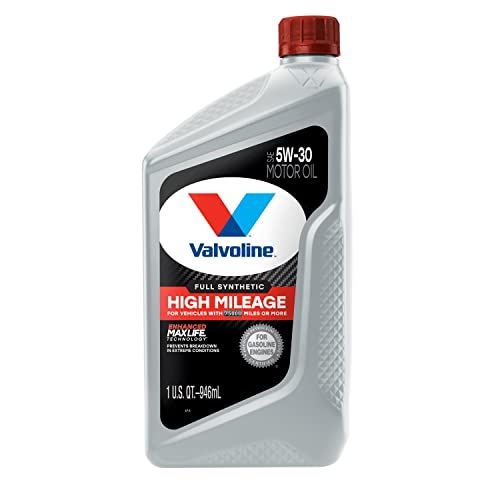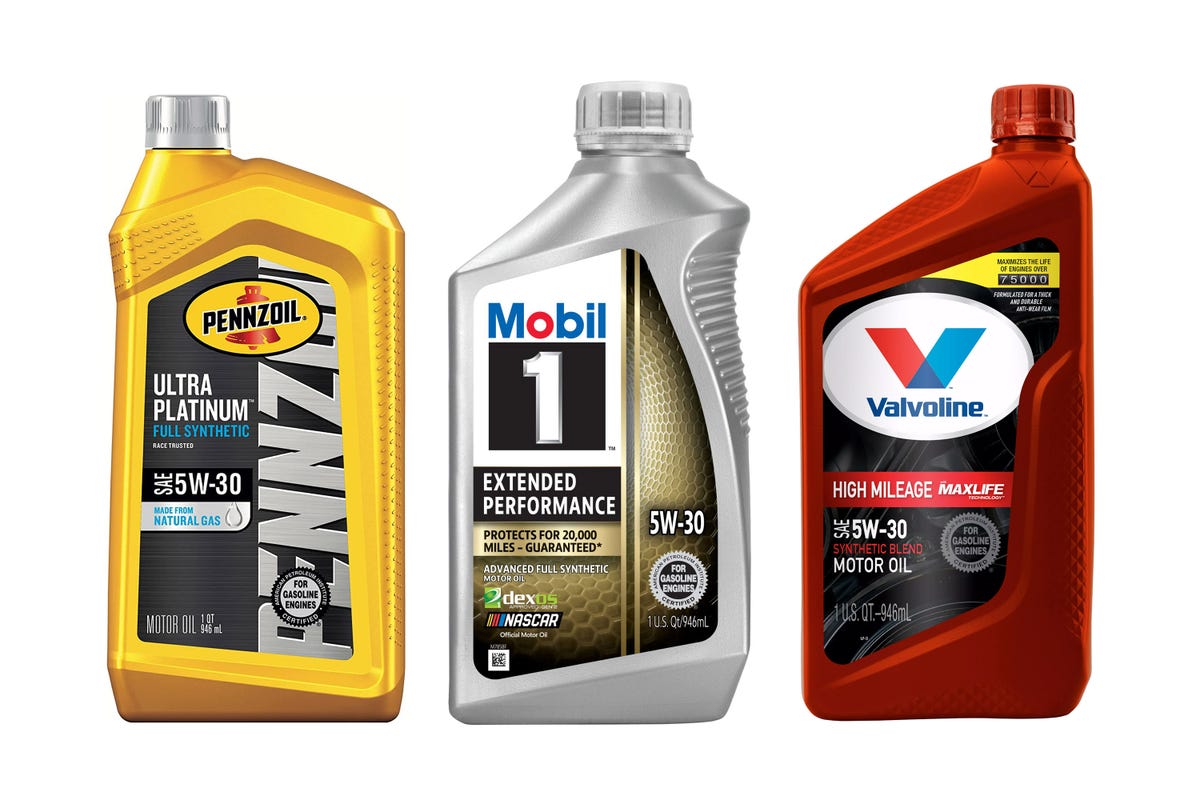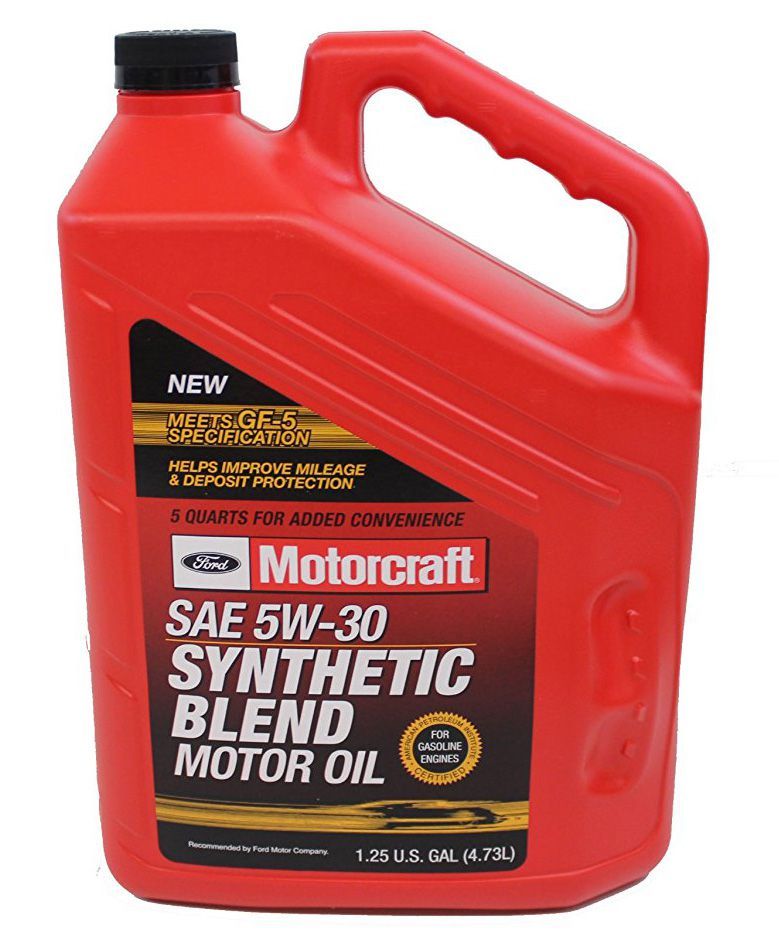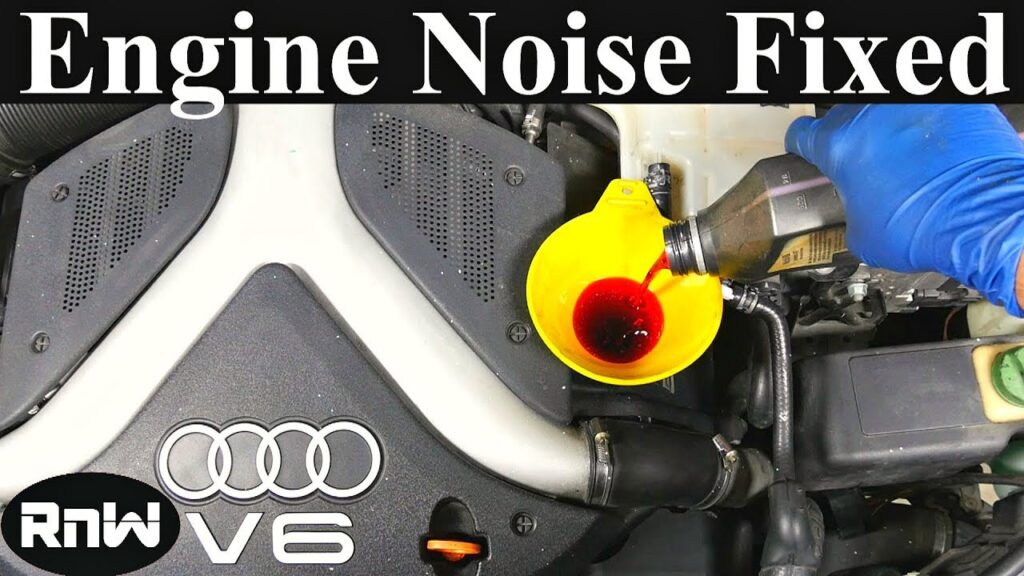The best gasoline engine oil provides optimal lubrication and engine protection. Castrol EDGE, fully synthetic and known for performance, often tops rankings.
Selecting the right engine oil for your gasoline engine is crucial for ensuring peak performance and longevity. An exceptional engine oil guards against wear, reduces friction, and keeps your engine running smoothly even under harsh conditions. Top-performing oils like Castrol EDGE are engineered with advanced technology to offer superior protection.
These formulas are designed to work with modern engines that demand high performance and efficiency. An informed choice in engine oil can lead to improved fuel economy, reduced engine deposits, and an overall augmentation in vehicle performance, making routine maintenance a strategic investment in your vehicle’s future. It’s essential to opt for an oil that not only complies with but exceeds industry standards, ensuring your engine is equipped to handle the road’s challenges.

Credit: www.caranddriver.com
Introduction To Peak Performance Engine Oils
Welcome to the world of Peak Performance Engine Oils, the lifeblood of your car’s powerhouse.
Your journey to unrivaled engine health begins with understanding why an elite-class engine oil is not just a choice but a necessity. Let’s dive into the essentials of keeping your motor running at its apex with the right oil.
Importance Of Quality Engine Oil
Quality engine oil is the cornerstone of a healthy engine. It lubricates, cools, and cleans internal parts to avoid damage. Over time, oil breaks down and must be replaced to preserve engine performance. A top-tier oil protects against wear, extends your engine’s life and maximizes efficiency for a seamless drive.
Criteria For Selecting The Best Gasoline Engine Oil
Choosing the best gasoline engine oil involves more than picking a popular brand. Consider these key factors:
- Viscosity: Match the oil’s thickness to your car’s needs and climate.
- Specifications: Look for oils that meet the latest industry standards.
- Compatibility: Check if the oil supports your engine type.
- Additives: Additives play a critical role in engine preservation.
Remember to consult your car’s manual for the manufacturer’s recommended oil type.
Synthetic Vs. Conventional Oils
Car enthusiasts and mechanics often debate on the best engine oil. Two popular types are synthetic and conventional oils. Both have unique benefits and disadvantages. Choosing the right one can improve your car’s performance and extend its life.
Comparing Properties
Synthetic oils and conventional oils differ greatly. Below, we compare their properties:
| Property | Synthetic Oil | Conventional Oil |
|---|---|---|
| Viscosity | Maintains stability in extreme temperatures. | May thicken or thin, affecting performance. |
| Lifespan | Long-lasting, requires fewer changes. | Requires more frequent changes. |
| Engine Protection | Offers better protection and less wear. | Less protective over time. |
| Price | Typically more expensive. | Cost-effective option for customers. |
Ideal Use Cases for Each Type
Which oil type suits your needs? See these use cases:
- Synthetic Oil:
- High-performance vehicles.
- Cars in extreme climates.
- Drivers wanting less frequent oil changes.
- Vehicles with turbocharged engines.
- Conventional Oil:
- Older car models.
- Cars with simple engine designs.
- Drivers on a tight maintenance budget.
- Vehicles used for light-duty driving.
Top Synthetic Engine Oils for Gasoline Engines
The health of your gasoline engine starts with the choice of engine oil. Synthetic engine oils stand out due to their high performance. They protect engines under extreme conditions. This section focuses on identifying the cream of the crop in synthetic engine oils for gasoline engines.
Features And Benefits
Synthetic engine oils offer numerous benefits. Their refined and purified base offers enhanced protection. They also have a higher viscosity index. Synthetic oils resist oxidation and thermal degradation. They keep engines cleaner and running more efficiently.
- Better fuel economy: Reduced friction aids in optimal fuel usage.
- Longer oil change intervals: Synthetics break down slower than conventional oils.
- Excellent cold weather starts: These oils flow better at low temperatures.
- Enhanced engine cleanliness: They help minimize the buildup of sludge and deposits.
User Reviews and Ratings
User feedback is critical in gauging product performance. High ratings often indicate satisfaction. Check out tables with user ratings for quick comparisons. Look for oils with positive reviews around engine performance and longevity.
| Brand | User Rating | Viscosity |
|---|---|---|
| Mobil 1 | 4.8/5 | 5W-30 |
| Castrol EDGE | 4.6/5 | 5W-40 |
| Valvoline SynPower | 4.7/5 | 0W-20 |
| Amsoil Signature Series | 4.9/5 | 5W-30 |
High-performance Choices for Racing
For those who crave speed, the right engine oil is crucial. Racing engines demand peak performance under extreme conditions. Every rev counts. These engines need oils that can keep up with their thirst for power while protecting against wear and overheating. High-performance engine oils have answers for these demands. Let’s explore how certain oils can take your racing experience to the next level.
Tailored Formulations
Racing oils are a breed apart. They are not just any oils; they are scientifically crafted for high-revving engines. Here are key factors in their formulation:
- Viscosity modifiers that withstand thinning at high temperatures.
- Enhanced friction reducers maximize horsepower.
- Additives for thermal stability keep engines cool at full throttle.
These specially designed formulas are born from rigorous testing and track performance. They create a shield for engine components, even in the heat of the race.
Experts’ Recommendations
What do seasoned racers and mechanics trust? Here’s a list of the top engine oils that are praised for their reliability on the track:
- Brand A’s Pro-Racing Oil: Known for exceptional film strength.
- Brand B’s Full Synthetic: Reduces engine wear and enhances performance.
- Brand C’s Speed Series: Optimized for thermal stability in high RPMs.
Racers rely on these expert recommendations because every second matters on the track. Harnessing the power of advanced oil technology gives them the edge they need to stay ahead of the competition.
Environmentally Friendly Engine Oils
The quest for sustainability is reshaping the auto industry. Engine oils play a crucial role in vehicle performance. Many brands now offer environmentally friendly engine oils. These oils protect engines and are kinder to the planet.
Advancements In Green Technology
Green technology in engine oils has come a long way. Scientists develop oils that emit fewer harmful substances. Modern lubricants are made to last longer, reducing waste.
- Biodegradable Options: These oils break down naturally.
- Reduced Toxicity: Less harmful to aquatic life and soil.
- Improved Fuel Economy: Better oil means less fuel consumption.
Top Eco-friendly Picks
Let’s explore the top picks for eco-friendly engine oils. Brands focus on creating products that offer great protection with minimal environmental impact.
| Brand | Type | Eco-Benefits |
|---|---|---|
| Green Oil | Synthetic | Highly biodegradable, low toxicity |
| EcoEngine | Full Synthetic | Lower emissions, extended oil life |
| NatureLube | Blended | Made with recycled base oil |
Choose these engine oils to protect your car and nature. Each product offers unique benefits. These include lower emissions and better fuel economy. They maximize engine life and reduce the carbon footprint.
Oil Viscosity and Engine Health
The lifeblood of any gasoline engine is its oil. Just as our blood needs the right balance to keep our body healthy, engines require the correct oil viscosity to run smoothly. Viscosity refers to the thickness of the oil. It affects how well the engine parts move and stay protected.
Choosing The Right Viscosity
Selecting the ideal viscosity is crucial for engine performance. This choice keeps your engine happy. Think of viscosity like a jacket for your engine. In cold weather, a thin coat won’t do much. In heat, a heavy coat is too much. Oil viscosity works similarly. Your car manual lists the right oil for your engine. Follow that guide.
- Thin oils flow fast, making them superb for cold starts.
- Thick oils stay intact in heat, protecting parts.
Impact On Engine Wear and Tear
A well-chosen oil viscosity shields your engine. It lowers friction. This protection reduces wear. Your engine then lasts longer. Regularly using the wrong oil can damage it. Higher viscosity oil may strain the engine in cold weather. Lower viscosity oil might falter in heat.
| Good Oil | Benefits |
|---|---|
| Correct viscosity | Lowers wear, extends life |
| Wrong viscosity | Raises risk of damage |
Additives And Enhancers In Engine Oils
Additives and Enhancers in Engine Oils play a critical role in boosting the performance and longevity of a car’s engine. These specialized compounds are meticulously blended into base oils to meet specific demands of modern engines. They protect against corrosion, improve viscosity, and ensure that the engine runs smoothly under extreme conditions.
Common Additives Explained
Let’s break down the key additives you’ll find in quality engine oils:
- Detergents: Maintain cleanliness by neutralizing acids and cleaning deposits.
- Dispersants: Help prevent sludge, varnish, and soot from clumping together.
- Anti-wear Agents: Create a protective layer to reduce friction on moving parts.
- Viscosity Modifiers: Stabilize oil performance across a wide temperature range.
- Antioxidants: Prevent oil breakdown by combatting engine heat and oxygen.
- Corrosion Inhibitors: Shield metal parts from rust and corrosion.
- Foam Inhibitors: Stop foam formation to ensure consistent oil pressure and film strength.
Pros And Cons Of Engine Oil Additives
Additives are the secret sauce giving engine oils their protective properties, but they come with their own advantages and disadvantages.
| Pros | Cons |
|---|---|
|
|

Credit: www.cnet.com
Budget-friendly Engine Oil Options
Caring for your car doesn’t mean you have to spend a fortune. A good-quality engine oil can be both effective and economical. Let’s explore options that keep your engine running smoothly while saving your wallet.
Affordable Yet Reliable
Budget-friendly doesn’t have to be synonymous with low quality. There are engine oils available that offer reliable performance at a cost that won’t break the bank. These products provide essential lubrication and protection for your vehicle’s engine.
- SuperTech Motor Oil: Offers dependable performance for everyday driving.
- AmazonBasics Motor Oil: Provides a balance between quality and affordability.
- Valvoline Daily Protection: Delivers trusted protection for a wide range of vehicles.
Comparisons And Cost Savings
By choosing wisely, you can enjoy significant savings over time. Compare these options to see how they stack up in terms of price and performance.
| Brand | Quality | Price Per Quart | Estimated Annual Cost |
|---|---|---|---|
| SuperTech | Good | $3.50 | $14.00 |
| AmazonBasics | Very Good | $4.00 | $16.00 |
| Valvoline | Excellent | $5.00 | $20.00 |
When considering cost versus value, note the frequency of oil changes needed. A cheaper oil might need more frequent changes. Calculate the overall yearly cost to determine the best budget-friendly option for you.
Changing Your Engine Oil
Regular oil changes keep your car running smoothly. Engine oil lubricates and protects your car’s heart. Think of it as your engine’s superhero cape. Without it, your car’s power-source wears out faster.
Best Practices For Oil Change Intervals
Oil change frequency depends on your car and how you drive. But there are some golden rules to follow.
- Check your owner’s manual for the manufacturer’s recommendation.
- Every 3,000 to 5,000 miles is a common interval.
- Newer models can often exceed 7,000 miles thanks to advancements in oil tech.
- Consider the driving conditions: Dirty or dusty roads might mean changing oil sooner.
- Synthetic oils can extend the time between changes.
The Process Of Changing Your Own Oil
Doing an oil change yourself saves money and can be rewarding. Follow these steps to ensure a smooth process.
- Gather tools: wrench, oil filter wrench, funnel, drain pan, and gloves.
- Buy the right kind of oil and a new oil filter. Your manual has this info.
- Make sure the engine is cool before you start.
- Locate the oil drain plug and place the drain pan underneath.
- Remove the plug and let the old oil drain out completely.
- Replace the oil filter. Be sure to lubricate the new filter’s gasket with fresh oil.
- Reinstall the drain plug and tighten it securely.
- Pour in the new oil using the funnel.
- Check the oil level with the dipstick, adding more if necessary.
- Start the engine and run it for a few minutes. Check for leaks.
- Dispose of the old oil and filter properly. Recycling centers take them.

Credit: www.caranddriver.com
Frequently Asked Questions
What Is the Best Gasoline Engine Oil?
The best gasoline engine oil varies by vehicle, but top-rated ones often include Mobil 1 and Castrol EDGE for superior performance and engine protection. Always check your vehicle’s manual for specific recommendations.
What is the Highest-Quality Motor Oil?
The highest quality motor oil is typically a fully synthetic formula that meets or exceeds stringent industry performance standards, such as API and ACEA specifications.
What Are the Top 5 Engine Oils?
The top five engine oils are Mobil 1 Synthetic, Castrol EDGE, Valvoline SynPower, Shell Rotella T6, and Pennzoil Ultra Platinum.
What Is the Best Oil for A Petrol Engine?
The best oil for a petrol engine is a manufacturer-recommended synthetic oil with appropriate viscosity. Always consult your vehicle’s manual for the ideal type and grade.
Conclusion
Selecting the right engine oil is crucial for maintaining your vehicle’s peak performance and longevity. With the options we’ve explored, finding a formula that suits your car’s needs should be straightforward. Remember to always consider viscosity grades, manufacturer specifications, and oil change intervals.
Drive confidently knowing you’ve made an informed choice for your engine’s lifeblood.

